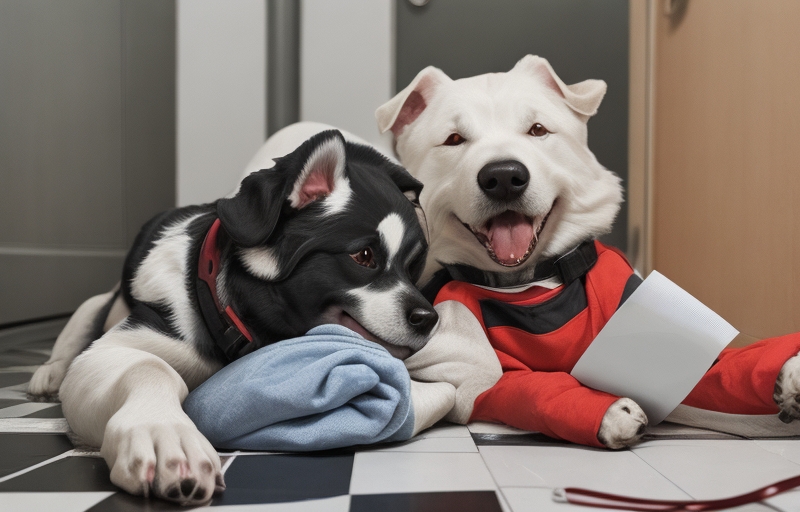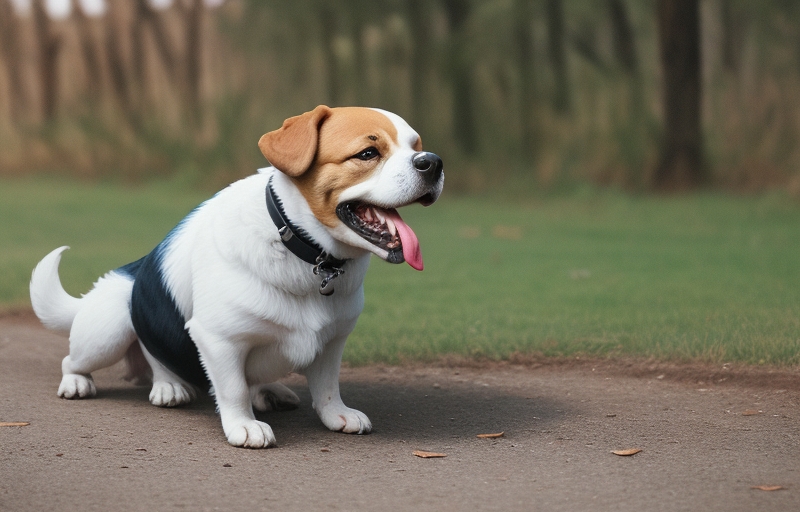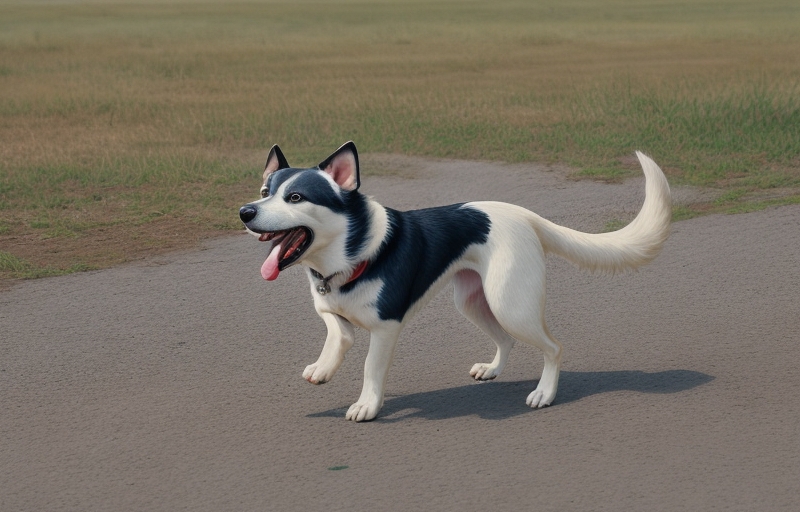Learn about kennel cough in dogs – a contagious respiratory infection caused by bacteria and viruses. Understand its symptoms, and differences from common coughs, and discover preventive measures. Consult a veterinarian for accurate diagnosis and appropriate treatment.
Introduction
Kennel cough, also known as infectious tracheobronchitis, is a highly contagious respiratory infection in dogs. It is characterized by inflammation of the trachea and bronchi, which are the large airways in the respiratory system. Kennel cough is often seen in environments where dogs are near each other, such as kennels, dog parks, boarding facilities, or places where dogs gather, hence the name “kennel cough.”
Causes of Kennel Cough in Dogs:
Kennel cough is most commonly caused by a combination of bacteria and viruses. The primary culprits are the bacteria Bordetella bronchiseptica and viruses such as canine parainfluenza virus and canine adenovirus. These pathogens are easily transmitted through the air when an infected dog coughs or sneezes, or through direct contact with respiratory secretions.
Symptoms of Kennel Cough in Dogs:

The symptoms of kennel cough can vary in severity, and not all infected dogs will display the same signs. Common symptoms include:
Persistent Coughing: The hallmark sign of kennel cough is a dry, hacking cough that often sounds like a honking noise. The cough may be triggered by excitement, exercise, or pressure on the trachea.
Runny Nose: Infected dogs may have a runny or stuffy nose, with clear or slightly cloudy nasal discharge.
Sneezing: Dogs with kennel cough may exhibit sneezing as a result of the respiratory irritation.
Watery Eyes: Some dogs may develop watery eyes due to the inflammation of the respiratory passages.
Mild Fever: In some cases, infected dogs may run a mild fever.
Lethargy: Kennel cough can cause a temporary decrease in energy levels, and affected dogs may appear lethargic or less active than usual.
Prevention and Treatment:
Preventive measures include vaccination against Bordetella bronchiseptica and other common respiratory pathogens. However, no vaccine can provide complete immunity, so good hygiene practices, avoiding crowded dog areas, and minimizing stress can also help prevent the spread of kennel cough.
Treatment typically involves supportive care, such as rest, proper nutrition, and sometimes, the use of cough suppressants. In more severe cases or if complications arise, antibiotics may be prescribed to address bacterial infections. It’s essential to consult with a veterinarian for an accurate diagnosis and appropriate treatment plan if you suspect your dog has kennel cough.
How kennel cough is different from common cough in dogs?
Kennel cough in dogs is different from a common cough in several ways:

Contagious Nature:
Kennel cough is highly contagious and often spreads rapidly in environments where dogs are near each other, such as kennels, boarding facilities, or dog parks. In contrast, a common cough in dogs may not have the same level of contagiousness and is less likely to spread from one dog to another.
Causes:
Kennel cough is typically caused by a combination of infectious agents, including bacteria (such as Bordetella bronchiseptica) and viruses (like canine parainfluenza virus and canine adenovirus). On the other hand, a common cough in dogs can result from various factors, including irritants, allergies, respiratory infections, or underlying health conditions.
Characteristic Sound:
The cough associated with kennel cough often has a distinctive dry, hacking, and honking sound. It is a persistent cough that may be triggered by excitement, exercise, or pressure on the trachea. In contrast, a common cough in dogs may have different sounds and characteristics depending on the underlying cause.
Common Environments:
Kennel cough is more commonly seen in places where dogs congregate closely, such as kennels, shelters, or doggy daycares. A common cough in dogs may occur regardless of their environment and can be influenced by factors like exposure to smoke, dust, or allergens.
Vaccination:
There are vaccines available to help prevent kennel cough, especially in dogs that are at a higher risk due to frequent exposure to other dogs. There is no specific vaccine for a common cough in dogs, as it is not a single disease but rather a symptom of various underlying conditions.
Conclusion
It’s important to note that while kennel cough is usually a self-limiting condition, a common cough in dogs can be a sign of various health issues. If your dog is coughing persistently or if there are other concerning symptoms, it is recommended to consult with a veterinarian for a proper diagnosis and appropriate treatment.
FAQs:
Is kennel cough serious?
While kennel cough is usually mild and self-limiting, it can lead to complications, especially in puppies, elderly dogs, or those with weakened immune systems. Severe cases may progress to pneumonia, requiring prompt veterinary attention.
Can kennel cough be prevented?
Yes, vaccination against Bordetella bronchiseptica and other respiratory pathogens can help prevent kennel cough. Good hygiene practices, avoiding crowded dog areas, and minimizing stress also contribute to prevention.
Can dogs with kennel cough infect humans?
While extremely rare, some bacteria causing kennel cough can potentially infect humans. However, it usually poses a minimal risk, and standard hygiene practices should be followed when dealing with an infected dog.
How is kennel cough treated?
Treatment involves supportive care, including rest and proper nutrition. Cough suppressants may be used, and in severe cases or if complications arise, antibiotics may be prescribed. Consult a veterinarian for an accurate diagnosis and treatment plan.
